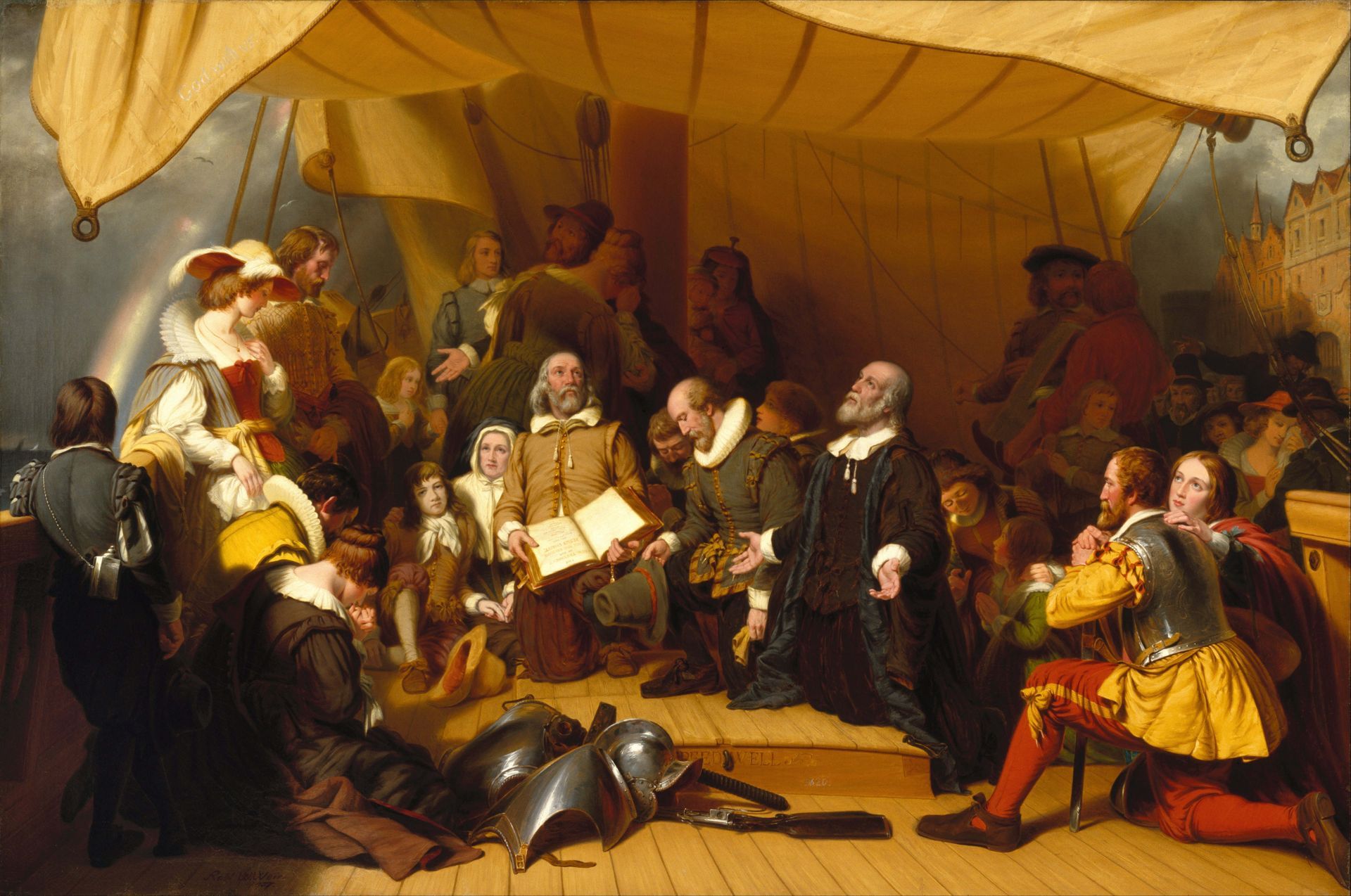Ft. Smith & Paris, AR Tea Party Speech
I’ve been watching the Tea Party Movement for some time now, and have even spoken at a couple of their rallies, in an attempt to ascertain what significant strains of emphasis would ultimately surface as their guiding agenda and purpose. It seems to me that I hear a constant clamor among Tea Party attendees for a return to historical conservatism—a conservatism in kind with our 1776 counterparts—a conservatism that is freely expressed in life, duty and faith—a conservatism that will again protect life, liberty and property, and a conservatism that will connect US inseparably to our Founding Era (1760-1805). It is to this end that I write this blog.
If, today, we only seek conservative practices without our Founder’s purpose and philosophy…if we only seek conservative policies without their effectual cause…if we simply seek a secular, political conservatism for the sake of our personal peace and affluence—then—we are terribly disingenuous…and we cannot TRULY say that we are the counterparts of the 1774 Boston Tea Party. We must not selfishly seek the effects of our Founder’s life and sacrifice and ignore their truthful passion and Biblical conviction which ultimately produced their practices and principles—AND GAVE BIRTH TO THE ONLY CONSTITUTIONAL REPUBLIC IN THE HISTORY OF THE WORLD THAT ENDURED 234 YEARS.
Are you aware that the Pilgrims of 1620—came to this new world with the hope that they might lay some foundation… for the propagating and advancing the gospel of the Kingdom Christ in…this remote part of the world ( William Bradford )…
And that the Puritans of 1630, who settled the Massachusetts Bay Colony, publically entered into a covenant with Christ…that they might become a city set on a hill ( John Winthrop ).
That the 1629 Charter for the establishment of Massachusetts declared that this people… be so religiously, peaceably and civilly governed [that] their good life and orderly conversation…win and incite the natives of [this] country to the knowledge and obedience of the only true God and Savior of mankind, and the Christian faith …
This was the fervency and passion that drove these early settlers through wind, hazard and peril…and provided their endurance and motive to establish a small beach-head in this new world…
Tragically, however, by the early 1700s the strong faith and practice of this first pilgrim generation was almost lost in the progress and ease afforded to their posterity…in just three or four generations, the noble and magnanimous deeds of their forefathers was effectively forgotten. Thus the strong Biblical resolve of our famous seventeenth century progenitors was lost, and a formidable spiritual darkness swept over the land…somewhat similar to our present plight…
And in the balances hung this greatest of all green places on planet earth…because the United States of America would have never been founded as it was Founded, except for the fervent and holy preaching of men like George Whitefield, Jonathan Edwards, Samuel Davies, Aaron Burr, Sr., Samuel Finley, etc. The Great Awakening of 1742 broke upon the Eastern shores of this country.
Lasting well into the 1760s, this greatest of all American revivals infused a steel resilience into the backbone of at least 2/3s of the Colonists, and inculcated an irresistible courage into their hearts and imbued a divine wisdom into their heads. The swelling common conversation concerning the grievances of King George—birthed in the Great Awakening and fertilized by the preaching of the New England ministers—ultimately gave birth to this incredible country. Their chief concerns were:
- The Consent of the governed,
- The will of the majority,
- The necessity of Religious liberty to all, with this caveat—that Christianity, not religion sects, denominations, doctrines, affiliations and organizations, BUT general Christianity be the common law of the land,
- They desired limited, federal governance, guided by Representatives from the colonies elected to safeguard the rights of the people of the governed…
- They desired an individual self-government regulated and governed by the individual conscience directed by Biblical authority
These, and other guidelines, epitomized the general mind of the majority of the colonists by 1776…and it was to this end that 56 Colonial leaders attached their names to a sacred document, often referred to as the Charter of the United States of America, to which they pledged their Lives , their Fortunes and their Sacred Honor : (Listen to their heart for a moment)
When in the course of human events, it becomes necessary for one people to dissolve the political bands which have connected them with another, and to assume among the powers of the earth, the separate and equal station to which the Law of Nature and Nature’s God entitles them, a decent respect to the opinions of mankind requires that they should declare the causes which impel them to the separation. [They continued] We hold these truths to be self-evident, that all men are created equal, that they are endowed by their Creator with certain unalienable rights, that among these are Life, Liberty and the Pursuit of Happiness. That to secure these rights, Governments are instituted among men, deriving their just powers from the consent of the governed. That whenever any form of Government becomes destructive of these ends, it is the Right of the people to alter or abolish it, and to institute a new government…
This is why, I reiterate, that if we only seek conservatism without the Founder’s passion and conviction, we are terribly disingenuous and selfish, that is, if we allege to be of their same warp and woof.
QUESTION: Why has 45% of the Evangelical vote the past several presidential elections favored economic preferences rather than moral convictions. Moreover, why is it, when asked for the primary motive for the Revolutionary War, the greatest response given today is— Taxation without Representation ? NOW—it is true that taxation without representation is a listed grievance in the Declaration of Independence, but it is 17 th in the Founder’s list of 27 grievances—it was a minor complaint, not a primary one.
But why do most Americans today offer that answer as the ultimate cause for the Revolutionary War? WHEN IN FACT,
- the Founders mentioned eleven times more often an abuse of Representative Powers by the English government.
- They mentioned seven times more often, the abuse of military powers,
- and four times more often the abuse of judicial powers (Judicial activism).
These abuses were far more significant to the Founders than taxation without representation. I suggest that a possible answer to these questions rests in the general tenor of our revisionist, multicultural, social studies training over the last fifty to seventy-five years. The history textbook used in the latter half of the nineteenth century, The Story of Liberty , by Charles Kauffin, told students that: “If you do not see the divine hand working behind the scenes, history will be an incomprehensible enigma.”
The United States Constitution is presently enigmatic because since its writing there have been many diverting agendas contrary to its original intent proffered as exceptional and even overthrowing its clear intentions. If you will notice in the first thirty to forty years after the signing of the US Constitution, there was a constant theme among the national and state leaders concerning the religious and moral foundation to liberty and freedom. I want to site just a few:
George Washington said in his Farewell Address (1796):
Of all the dispositions and habits which lead to political prosperity, religion and morality are indispensible supports…And let us with caution indulge the supposition that morality can be maintained without religion. Whatever may be conceded to the influence of fine educated minds…reason and experience both forbid us to expect that national morality can prevail, in exclusion of religious principle…
John Adams (1789):
We have no government armed with power capable of contending with human passions unbridled by morality and religion …Our Constitution was made only for a moral and religious people. It is wholly inadequate for the government of any other.
John Q. Adams :
The highest glory of the American Revolution was this: It connected, in one indissoluble bond, the principles of civil government with the principles of Christianity.
In the 1980s, two Political Scientists from the University of Houston, Donald Lutz and Charles Hyneman, set out to discover why the U.S. Constitution had lasted for such a long time; they wanted to determine, if possible, what Founders actually meant—what was their original intent? Well, since the Founders are all passed away, how would you approach this research? This is what Lutz and Hyneman did.
They reviewed about 15,000 different items, closely reading 2,200 books, pamphlets, newspaper articles, and monographs—all printed between 1760 and 1805. Eventually they reduced this enormous list to 916 items, from which they identified 3,154 references to additional sources. They discovered that the source most cited by the Founders was the Bible (34% of the citations). The individuals most cited by the Founders were not deists, but conservative legal thinkers (often Christians). Leading this list was Baron Montesquieu (8.3% of the citations). They broke their research down into decades and discovered that John Locke led in the most citations in the 1760s and 1770s, but Wm. Blackstone and Baron Montesquieu led in the 1780s and 1790s. The point is that during this period, the most cited reference by our Founders was the Bible and men who revered the Bible. So, I conclude that while you can superimpose a revisionist history upon America and her Founding Era that rejects God and His Word, you cannot legitimately separate America from her true Biblical history when appealing to original sources.
Let me close by quoting John Hancock in an occasion when he was commemorating the 1770 Boston Massacre:
Let us commit our righteous cause to the great LORD of the Universe, who loves righteousness and hates iniquity. And having secured the approbation of our hearts by faithful and unwearied discharge of our duty to our country, let us joyfully leave our concerns in the hands of Him who rises up and pulls down the empires and kingdoms of this world…
So let me repeat, if we only seek secular conservative practices and their affects without the Founder’s philosophy and conviction…if we only seek conservative policies without their effectual cause…if we simply seek a secular conservatism for the sake of our personal peace and affluence—then—we are terribly disingenuous…and we cannot TRULY say that we are the counterparts of the 1774 Boston Tea Party. We must not selfishly seek the effects of our Founders and ignore their truthful passion and Biblical conviction which ultimately produced their practices and principles—AND GAVE BIRTH TO THIS CONSTITUTIONAL REPUBLIC—one Nation under God!
G. Thomas Sharp



